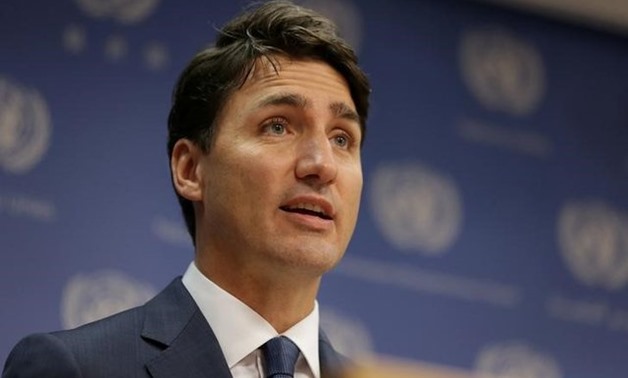
FILE PHOTO: Canadian Prime Minister, Justin Trudeau, speaks during a news conference at U.N. headquarters during the General Assembly of the United Nations in Manhattan, New York, U.S., September 26, 2018. REUTERS/Amr Alfiky/File PhotoREUTERS
OTTAWA/MONTREAL - 3 October 2018: With his political future at stake, Canadian Prime Minister Justin Trudeau will mount a charm offensive to placate dairy farmers who say he sold them out in order to win approval of a continental trade deal.
Compounding Trudeau's challenges in the influential province of Quebec, where many dairy farmers are based, voters there tossed out one of his allies on Monday in favor of a new center-right party that opposes immigration and supports supply management, as Canada's dairy protection system is known.
Unhappy Quebec farmers - who are a political force - are already complaining to legislators from the ruling Liberals, and insiders concede there is no guarantee of winning them over, leaving Trudeau potentially vulnerable in a federal election set for October 2019.
The prime minister needed a win on trade after a year that has left his environmental and energy policy in tatters. That said, opposition leaders have struggled to connect with voters and their parties face their own challenges in Quebec.
Under the new United States-Mexico-Canada Agreement (USMCA), which replaced the North American Free Trade Agreement (NAFTA), Ottawa on Sunday bowed to long-standing pressure from U.S. President Donald Trump's administration to grant more access to the highly protected dairy market.
In return, the United States dropped a threat to impose tariffs on Canadian auto exports. This would have caused major damage to the economy and disproportionately affected Ontario, Canada's most populous province, which also tilted right in a June provincial election.
"Dairy was Trump's personal obsession, and so there was no way we could have made a deal without some form of dairy concessions," said one senior Liberal, who declined to be identified given the sensitivity of the situation.
The government plans to discuss a promised compensation package with dairy farmers in coming months, as well as ways the industry can be made more competitive.
"There is going to be a rough patch and our members of Parliament are already hearing it, especially those in rural areas," said the Liberal source.
Trudeau says farmers will be fully compensated, which in the past has helped mute their protests over concessions agreed in earlier trade deals.
"We are reaching out to them, we want to work with them. That's going to be the message and hopefully that will be sufficient to get over this, but there's nothing guaranteed in life," said the Liberal.
The dairy industry is concentrated in Ontario and Quebec, which together account for 61.5 percent of the population. Trudeau has no chance of retaining power unless the Liberals do well in both provinces.
"People feel betrayed," said Bruno Letendre, chairman of a group representing Quebec's dairy farmers. "They don't want compensation. They want to produce for the Canadian market."
Quebec's premier-elect, Francois Legault, plans to meet with farmers on Tuesday before deciding on what options to pursue. He told reporters, "I will do everything to defend them".
The Liberals, who now hold 40 of Quebec's 78 seats in the federal House of Commons, privately say that to retain their parliamentary majority next year they need to win another 20 to offset expected losses elsewhere, including in British Columbia where a pipeline dispute has pitted the province against Ottawa.
Trudeau could be spared the worst in Quebec, where a prominent Conservative recently quit to form his own party, threatening to split the right-leaning vote. The leftist New Democrats, who compete directly with Trudeau's Liberals, are losing public support.
Opinion polls taken before the trade talks ended showed the Liberals comfortably ahead of the official opposition Conservatives, who have spent the last two days accusing Trudeau of selling Canada short in the trade deal.
"The political calculus for the Liberals would be that failing on NAFTA was really not an option because that would leave them significantly vulnerable in terms of their economic track record," said pollster Nik Nanos of Nanos Research.
"I think they decided it would probably be easier ... to take their lumps with the dairy farmers than to face a broader narrative of mismanagement of the trade file and the economy among many Canadians," he said in an interview.


Comments
Leave a Comment